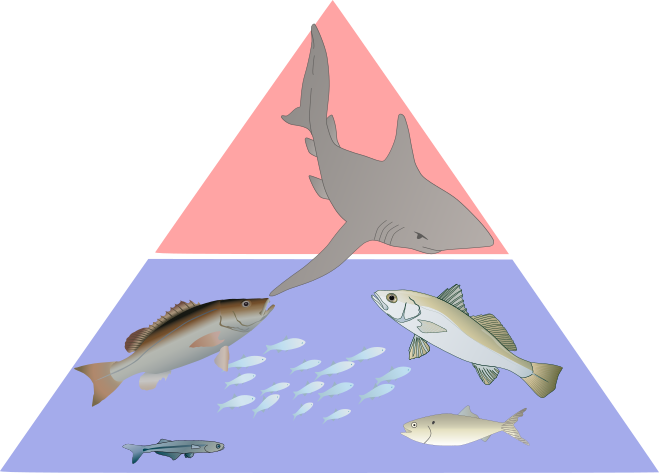Word Wednesday
Ever wonder about the jargon scientist use? In our Word Wednesday series, we explain the meaning behind scientific terms and concepts important in ACER research.
Word Wednesday: Functional Diversity

The umbrella of diversity includes several different types as seen in our previous Edublog posts on biodiversity and genetic diversity. ACER researchers are considering these different types of diversity in their investigations of ecosystem resilience (ie. resistance) in response to disturbance. This week we explore functional diversity.
Word Wednesday: Top down or bottom up?

A few weeks ago we discussed food webs and introduced the topic of top-down and bottom-up control. Today we are going to dig a little deeper into those processes and look at some examples in the marine environment.
Word Wednesday: Primary Productivity
We have chatted before about food chains and food webs and you may recall learning about the process of photosynthesis. When scientists consider ecosystems, you will more often hear the term primary production. What is the link between these terms? Are they the same thing? Why do scientists measure it?
Word Wednesday: Bioturbation

Just like a healthy garden, a healthy ocean floor has worms and other animals that move through, ingest and affect the characteristics of the ocean floor sediment. This process is known as bioturbation. In this installment of Word Wednesday, we will explore this process of bioturbation, who are the key players, what they do and why this process is important.
Word Wednesday: Genetic Diversity

In an earlier post we talked about ACER’s focus on biodiversity. Scientists look at biodiversity at several scales such as the level of the ecosystem, or the species level and even the level of the individual organism. With modern gene sequencing technology, scientists are able to look at the variation in genes between individuals. We call this genetic diversity (biodiversity – at the level of molecules!). Let’s explore it in more detail.
Word Wednesday: Louisiana sweet crude oil and chemical dispersants

Sweet or sour? While you might think we’re talking about candy, this week’s Word Wednesday is actually about crude oil. Join us as we explore the sweet and sour properties of crude oil as well as chemical dispersants that were used in the clean-up of the Deepwater Horizon oil spill.
Word Wednesday: Food Webs

Food webs & trophic cascades: It’s more than just who eats whom.
Word Wednesday: Benthic Macrofauna

It’s a small world in the benthos…or is it? Today’s Word Wednesday will explore the benthic community, home of the macrofauna and other bottom dwellers.
Word Wednesday: Microplankton
Large, medium, small – and really, really small… Today’s Word Wednesday focuses on microplankton. Are they plants, animals or something else? Does the name have a specific meaning?
Word Wednesday: Denitrification

You may have heard that matter is neither created nor destroyed, but what does this really mean? This week’s Word Wednesday focuses on the process of denitrification and the nitrogen cycle.
Word Wednesday: Bacteria and Prokaryotes

Bacteria, microbes, prokaryotes – no matter what you call them, we can’t live without them…
Word Wednesday: Disturbance and Perturbation

In this installment of Word Wednesday we examine how ecologists define disturbance.
Word Wednesday: Ecosystem Services

In this installment of Word Wednesday we answer the question: What are ecosystem services?
Word Wednesday: Diversity and Resilience
Join us on Wednesdays to uncover the meaning behind various terms and concepts important in ACER research. This week, let’s learn about diversity and resilience.









